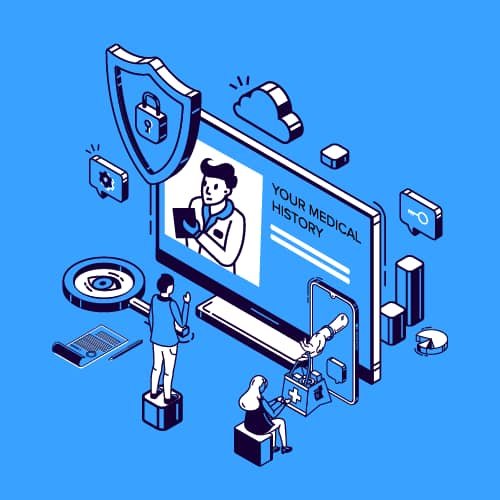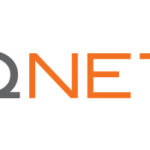By Usman Aliyu, News Agency of Nigeria (NAN)
In today’s fast-paced world, where technological advancements shape every aspect of human lives, the healthcare sector has also undergone a significant transformation. One such paradigm shift in the Nigerian healthcare institution is the adoption of the digital health records system, also known as Electronic Medical Records (EMR) systems.
Among these institutions, the University of Benin Teaching Hospital (UBTH) stands out as one of the pioneers in the Nigerian public health sector that are implementing an interoperable digital health system, thereby revolutionising patient care and justifying the calls for widespread integration across Nigeria’s healthcare landscape.
Mrs Favour Edosa, a mother of four, whose three-decade journey as a patient at the hospital underwent a revolutionary transformation. Gone were the days of lugging around folders and papers across various units. In 2020, when she stepped in for a check-up, a wave of change greeted her.
No more paper prescriptions – just a sleek code from the doctor for her test. At the lab, like magic, her data seamlessly flowed through the electronic channels. She said results were swift, and a mere instruction led her back to the doctor, showcasing the seamless interoperability of the medical health records and management system at this health institution.
Edosa’s experience became a testament to the hospital’s commitment to embracing a future where patient care is streamlined, efficient, and utterly paperless.
Before the introduction of the digital health records, Prof. Stanley Okugbo, Chairman of the Medical Advisory Committee at the hospital, says the processes of health records and management system, were laborious and time-consuming. Okugbo, a consultant physician and the Director, Clinical Services and Training at the teaching hospital, explains that patient records were stored in bulky paper files, making it challenging to access critical information when needed.
“For instance, with the digital system, if you want to see a patient as a doctor, you can easily have access to his previous records. You can collaborate with other doctors as well.
“Digital records are retrievable and you can review them quickly without having to go to the bulk of looking for papers or writing to bring records and case notes.
“UBTH is very large. We see an average of between 1000-1200 outpatients daily. So before the adoption of the electronic system, many case notes were missing.
“It is not necessarily because somebody stole it, but due to poor filing. So you would see across the hospital, people who were looking for case notes; temporary case notes were being opened,” he says.

With the arrival of the digital health records and management system, Prof. Okugbo claims that the innovation has brought a seismic shift in the hospital’s operations as patient information, from medical history to test and results, become readily accessible at the click of a button.
This newfound efficiency, according to him, does not only streamlines the workflow for healthcare providers, but also translates to tangible benefits for patients.
Buttressing these stances, Mrs Tosin Omoregie, who has also been an outpatient at the health institution for years, says the impacts of the digital innovation are not limited to medical and health workers alone.
Patients, she notes, now experienced firsthand, the newfound convenience of managing their healthcare through the system. The seamless access to vital information, Omoregie says, saves their precious time.
In her own encounter, she recalls with amazement the doctor effortlessly prescribing her medication without the customary paper prescription. A trip to the pharmacy, she said, unfolded a digital marvel, where prescriptions were transmitted with a finesse, leaving her genuinely amazed at the cutting-edge transformation in the world of medicine.
Omoregie was not alone as Miss Joy Odigie, also a resident of Benin and an outpatient at the hospital for the past eight years, recalls the countless hours she used to spend navigating the bureaucratic hurdles of scheduling appointments, obtaining test results, and managing prescriptions under the paper-based system.
But with the new system, she avers that the tasks have become streamlined, freeing up time for hospital staff to focus on providing quality care. Odigie appreciates the newfound efficiency, which marked a sharp departure from the time-consuming processes of the past.
“Electronic medical records reduce time wastage in the hospital. Before the digitalisation, I usually spent about eight hours in hospital from the point of submission of the hospital card to the time of getting the prescribed drugs from the pharmacy. I now spend about five hours.
“Paper-based is cumbersome; records can get missing, and health officers spend time looking for case notes. Similarly, test results are more confidential now as they go straight from the lab to the digital platform for the doctors to access.
“The chances of the lab test results getting missing at the patient’s end are reduced. It has also made the health practitioners more efficient and digital compliance,” she said
Upscaling the system
As the success stories of patients like Omoregie and Odigie, as well as healthcare professionals like Prof. Okugbo continue to emerge, the call for an interoperable digital health system in Nigeria becomes increasingly urgent.
The UBTH’s experience serves as a compelling case study for the broader healthcare landscape in the country. In a nation where healthcare resources are often strained, the need for efficient, accurate, and accessible digital health records is critical to improving patient care and optimising healthcare delivery.
Mr Emeka Chukwu, a digital health consultant and co-founder, Digital Health Interoperability Network (DHIN) says interoperability in health records management is crucial, to significantly impacting how healthcare is delivered and the patient outcomes.

Some of the benefits, he says, include enhanced patient care as a result of cross institution information sharing. An interoperable health records system, according to him, also improves efficiency and reduces wasted efforts of duplicate information entry.
“Interoperability can reduce errors and increase safety. Errors such as duplicates, omissions, inaccuracies especially medication related errors.
“Both clinical and public health decision making will be impacted by availability of data from multiple institutions and patients will be more engaged and satisfied with delivered service.
“It can also result in increased hospital revenue; many hospitals deploy integrated digital systems to facilitate cost savings through leakage blockages,” he says.
Chukwu cites countries like Germany, Estonia, the United States and the United Kingdom as places where Nigeria can learn, when it comes to interoperability in the health system.
The expert notes, however, that for facilities to adopt the digital data sharing systems, there is need for the right enabling environment to be in place so as to better manage the processes. Notably, he says, are electricity, internet, the computers, the workforce, technical and users are needed for a robust system.
Sharing the same sentiment, Prof. Okugbo, who is also the deputy to the Chief Medical Director of the UBTH says an interoperable health system encourages interface among major health institutions for efficiency and effectiveness.
He notes, nonetheless, that the journey to a nationwide interoperable digital health system is not without its challenges.
“There are complexities involved in integrating disparate systems across various healthcare facilities in Nigeria. However, he is unwavering in his belief that the benefits far outweigh the obstacles,” he says.
The senior physician envisions a future where patients can seamlessly access their medical records from any healthcare facility, empowering them to take control of their health and make informed decisions.
He emphasises that an interoperable system will enable healthcare providers to collaborate more effectively, leading to better coordinated care and ultimately improving health outcomes for all Nigerians.
He advocated legislation and standardisation from the government to encourage an integrated system among the stakeholders, which will speak to each other.
“I think it is a very good thing, but it can’t come from a hospital like ours. We need policy makers to decide that and legislate the process and to supervise it; otherwise, there will be a lot of abuse.
“One of the problems you wouldn’t want is for your data to be stolen and sold. A lot of data is stolen from Africa and sold. You won’t know they are selling it. So we need government regulation to run that,” he suggested.
Chukwu, who is leading a network that is championing interoperable digital health systems in Nigeria and Africa, concludes that policymakers should not make a mistake to think of one giant system, but rather an investment in interoperability of the existing systems. (NAN)(www.nannews.ng.com)
==============
Edited by Muhammad Suleiman Tola
NB: This report is produced under the DPI Africa Journalism Fellowship Programme of the Media Foundation for West Africa and Co-Develop.












